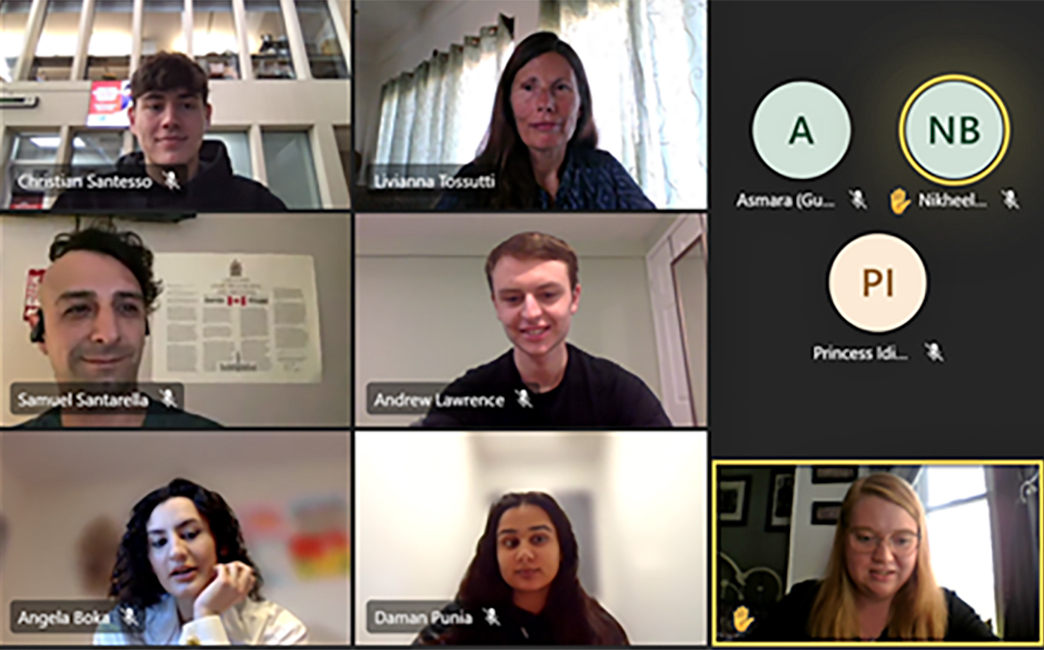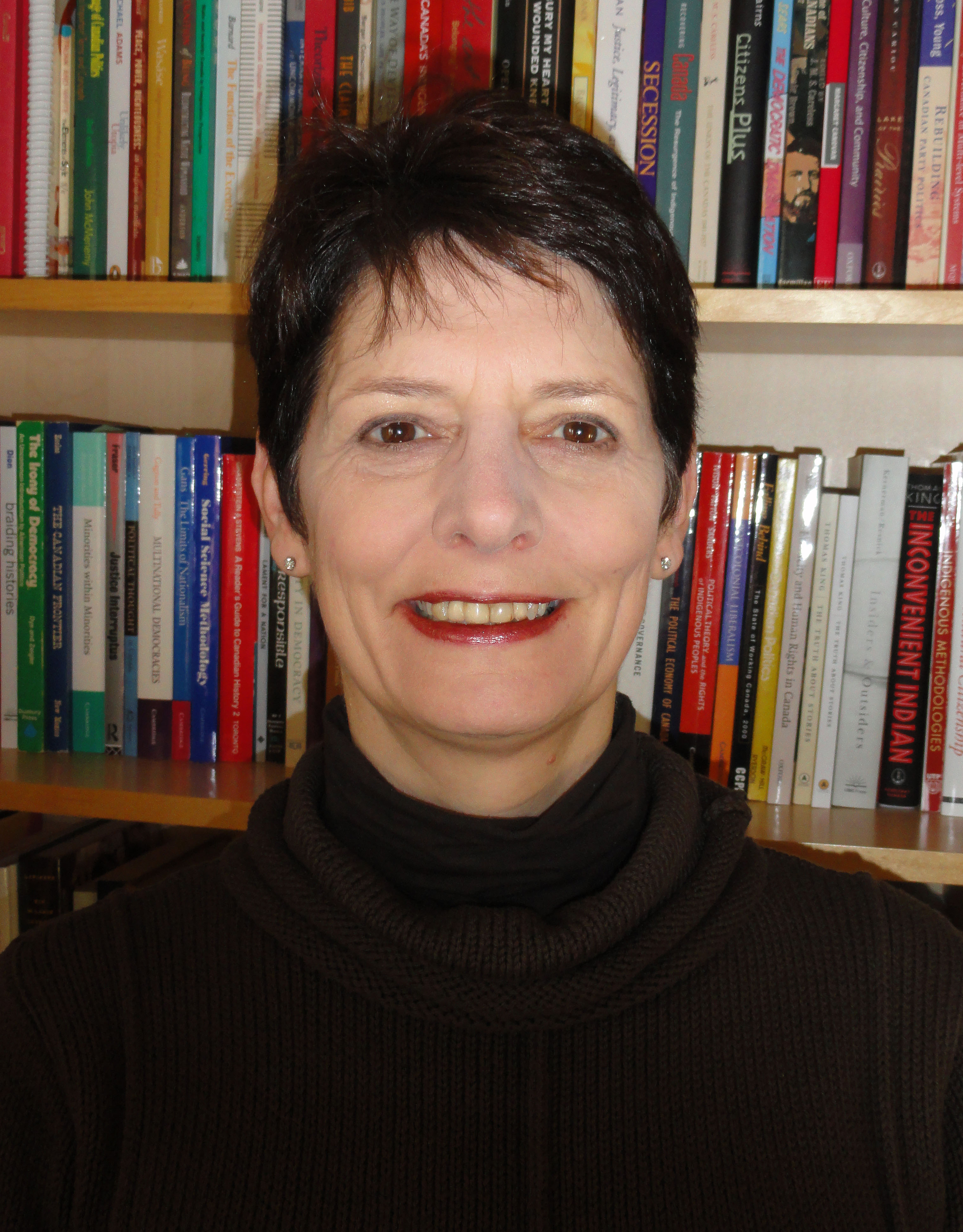Brock Political Science students are connecting with their professors in a brand new way this semester.
The inaugural POLI 101 Coffeehouse series creates opportunites for students to chat informally with a professor in a specific area of political science about interests, pathways, pitfalls and advice.
The series is the joint effort of fourth-year Political Science major and Student Ambassador Rebecca Van Massenhoven and third-year student representative Christian Santesso, who teamed up to organize the five-event series.

Students gathered at a POLI 101 Coffeehouse session on March 3 to chat with Associate Professor Livianna Tossutti in the Department of Political Science.
“We wanted something interactive and welcoming that could break down the barrier between professor and student and show how a political science degree can be used to its best advantage,” says Santesso. “Professors could take a step back and instead of teaching, talk about their own personal experiences, what made them fall in love with their specific field and what different opportunities political science has brought them.”
Van Massenhoven adds that upper-year students had expressed concerns about losing out on one-on-one time with professors during the pandemic, while newer students were feeling anxious about approaching professors in person during the transition back to campus.
She and Santesso saw the virtual sessions as a way to create networks and help bridge two divides: between professor and student, and between virtual and in-person learning.
The organizers spread the word about the sessions via the Department’s Instagram account, emails to students and a dedicated Microsoft Teams channel. As an added incentive, students who attend three or more sessions earn a LinkedIn badge that can be displayed on their profiles.
Second-year Political Science representative Makenzie Tavares designed the badge.Fourth-year Political Science major and Student Ambassador Rebecca Van Massenhoven helped to organized the inaugural POLI 101 Coffeehouse series.
“The badge represents the five areas of political science discussed in the POLI 101 sessions: policy and administration, theory, international relations, comparative, and Canadian studies,” Tavares says.
Student response to the sessions has been overwhelmingly positive, with attendees turning up from all levels of study and even outside of the department.
“Feedback shows that students are excited to take full advantage of this opportunity,” says Santesso. “They are no longer nervous to seek advice from their professors, which builds important connections they can use in the future, all while expanding their knowledge of the fields of political science.”
Van Massenhoven says that professors have also expressed a great deal of support and enthusiasm for the endeavour.
“The professors say they’re happy to meet individually with students or answer emailed questions to continue these conversations,” says Van Massenhoven. “That support coming from both sides, both from the professors and from the students, really shows that these sessions are very much what students are looking for, and they’re how professors are looking to support their students as well.”
Associate Professor Livianna Tossutti recently took part in the POLI 101 Coffeehouse. She says she wishes that she would have had a similar opportunity to connect with her professors as an undergraduate.
“I had a blast because I got to know the students on a more personal level, learning about their career interests, what they’re thinking about and what their worries are,” says Tossutti. “I enjoyed being able to connect with them on a deeper level and having a casual opportunity to let down our guard and relate as human beings, with some lightness and humour.”
“Christian and I are thankful for the amount of commitment that both the professors and students have shown in attending these sessions,” says Van Massenhoven. “Burnout is a little bit higher right now for everyone, so we’re thankful that people are taking the time to come and sit with us. Their response overall has been something that we really appreciate.”Tossutti also says hearing directly from students in this way about their plans and the skills and knowledge they need to attain their objectives helps her reflect on how she might support those goals in her courses.
Dean Ingrid Makus of the Faculty of Social Sciences calls it “thrilling to see the success of this innovative project driven by students.”
“It’s an impressive realization of our vision for the student ambassador program, which was supported by the Dean’s Discretionary Fund to both professionalize and engage students,” she says.
The next session takes place on Thursday, March 31 from 3 to 4 p.m., when Associate Professor and Chair of Political Science Tim Heinmiller will talk about the field of policy. Register online to attend.









